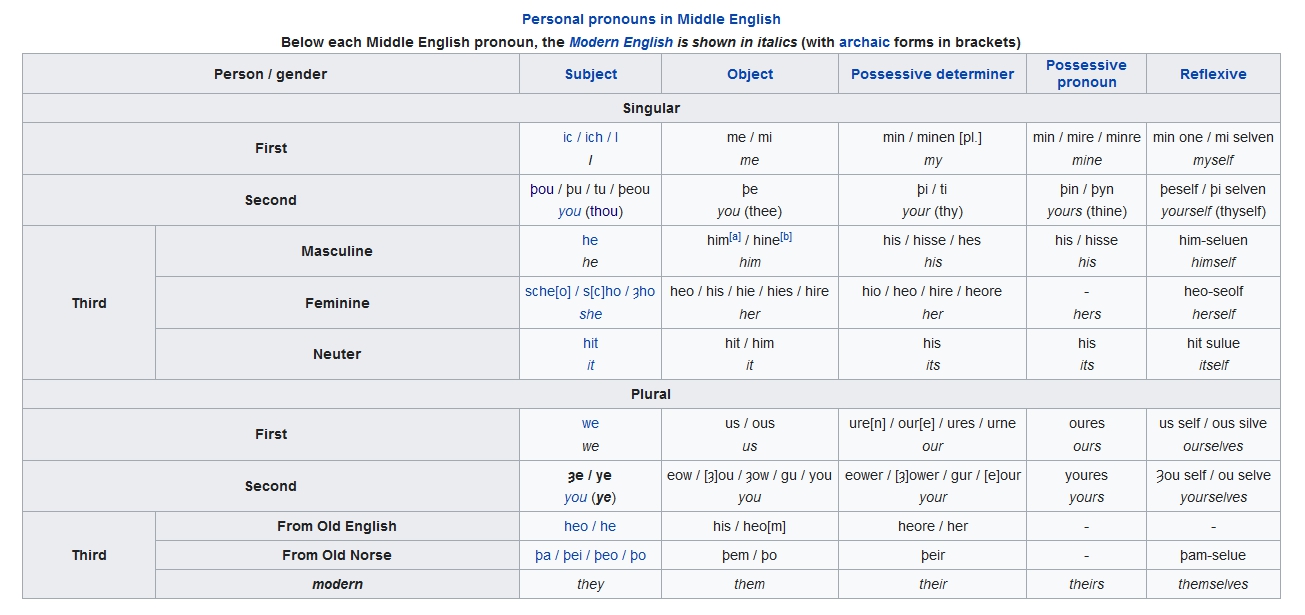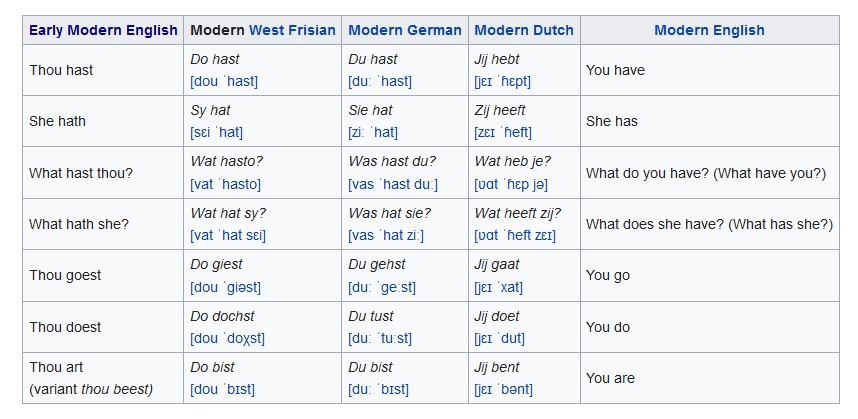How to roll in English: gradation of the word “you”

There is no word “you” in English. Rather, it exists, but is used only in literature and religion.
The English “you” is used instead of “you”, and instead of “you” as an appeal to one person, and instead of “you” as an appeal to several people, and even “you” as a particularly respectful appeal.
Therefore, the question arises how to use “you” correctly in order to avoid misunderstandings.
It is clear that in the phrase “Hey you, motherf * cker!” it doesn’t even smell like respectful treatment. But the nuances of English weaving are still missing. We will talk about them today.
Why in English everyone turns to “you”
Not only was the number of pronouns in Middle English much larger than in the modern language, but they also declined in cases. The grammatical structure of the language was quite similar to modern German.

Middle English was still very strongly associated lexically and grammatically with other European languages.

Starting in the 16th century, the structure of the English language began to be simplified. Cases are gradually falling out of use, and the variety of pronouns is greatly reduced.
The pronoun “thou”, which denotes the second person singular, also began to be used less frequently. The reason is simple – the pronouns “ye” and “you” began to be used to refer to one person.
“You” turned into an appeal to a superior person – that’s why they say “your majesty”. And “thou” also changed its original meaning – now it has become an appeal to a lower person. For example, a servant or a commoner. Calling each other on “you” has become uncivilized, because such treatment has become disrespectful.
But there is an exception. In the English religious tradition, in prayers to the Almighty, only “thou” are addressed, but often with a capital letter. Thus, the proximity of higher powers to a person is transmitted.
Today the word “thou” is out of use. It is because of the negative context that it acquired during the development of English. It is actively used only by Quakers – a religious Christian community that preaches pacifism, denies baptism and communion as Christian sacraments.
Gradations of the word “you”
Because of this bizarre historical twist, “you” can be used both as polite and impolite. Therefore, intonation and context play an important role.
In fact, due to the fact that the pronoun “you” remained the only one, it ceased to denote a respectful attitude towards a person. Now the word “you” is equally used both for formal situations and for informal ones, where respect was not even close.
Excuse me, sir, could you please help me? – Excuse me sir, could you help me please?
Hey you, come here and help me. – Hey you, come here and help me.
The word is used the same, but the context is completely different. This is noticeable here, because in the first sentence the polite words “sir”, “please” are used, and in the second – not too correct “hey you” and the imperative mood.
But there are cases when with the help of intonation it is possible to radically change the meaning of a phrase.
Can you please hold the door?
If you pronounce it in a soft tone, emphasizing only “please” and “door” in intonation, then it will be quite a polite request – “Could you hold the door, please?”
If you say it in an irritable tone, emphasizing every word, you get a mock command – “Hold this door.” And in a rather derogatory sense. In this version, “please” plays a purely decorative role and means just an instruction, not a request.
How to reach multiple people so there is no confusion
Now the word “you” has begun to gradually lose its meaning as a plural pronoun. Which added confusion to everyday situations.
Let’s imagine a situation that a friend and a girl come to visit you. And you, as a zealous owner, greet them:
– Good to see you! I’m so glad you’re here.
Who does this phrase refer to? Simultaneously to a friend and a girl? Or only to a friend, and you are not happy to see a girl? The word “you” is not clear.
To make it absolutely clear, you need to say this:
– Good to see you! I’m so glad you both are here.
Then it will be immediately clear that you are glad to see both your friend and his chosen one.
Actually, this is why, when addressing several people, the “you” form is not the only possible option. Much more people say “you all”, “y’all” or “you guys”.
There are about a dozen different plural forms of the word “you” in total. Except that it is already in the plural.
The most common:
- You all
- Y’all
- You-unz
- Yinz
- You guys
- You lot
- Yous
With “you all” and “y’all” everything is clear – this is “you all” and a slightly abbreviated version of the same phrase.
“You-unz” and its abbreviated version “yinz” are from Celtic languages. It is used primarily in Ireland and Scotland, as well as in parts of the United States where large numbers of ethnic Irish and Scots live.
“You guys” is the most common variation in the United States, used by two-thirds of the country. Interestingly, the word “guys” has no gender here. Therefore, the phrase applies to groups of girls. However, recently the feminist communities have been insisting to use “you all” instead as a more gender-neutral option. But you can’t argue against tradition, so “you guys” is still in use.
“You lot” is the British version of “you guys”, which is common in England. And another version of “yous” is popular in English-speaking Africa.
Sometimes very wild variants like “all y’all” and “youse guys” are used, but this is an individual tool to diversify your language and it is not accepted everywhere.
In different cities and regions, different appeals may be familiar. Here’s how these hits are ranked by popularity in the US:

***
History sometimes makes interesting kunshtuk. Indeed, in fact, the attempts of the medieval English to sound more polite led to the fact that the pronoun “thou” completely dropped out of use. And because of this, in turn, “you” has lost its respectful gloss and began to sound ordinary.
As a result, everyone is out of control, but there are no more gentlemen, only problems have been added so much that they had to reinvent the wheel in order to address several people.
English is easy, they said. English has logic, they said. And then we got acquainted with English humor and understood what the trick was. The joke is counted.
Online school EnglishDom.com – inspiring to learn English through technology and human care
For Habr readers only first lesson with a teacher on Skype for free! And when you buy classes, you will receive up to 3 lessons for free!
Get a whole month of premium subscription to the ED Words app as a gift…
Enter promo code youwhat on this page or straight in the ED Words app… The promo code is valid until 11/13/2021.
Our products:
- Learn English words in the ED Words mobile app
- Learn English from A to Z on the ED Courses mobile app
- Install the extension for Google Chrome, translate English words on the Internet and add them to study in the Ed Words app
- Learn English in a playful way in the online simulator
- Strengthen your speaking skills and find friends in conversation clubs
- Watch a video of life hacks about English on the EnglishDom YouTube channel






